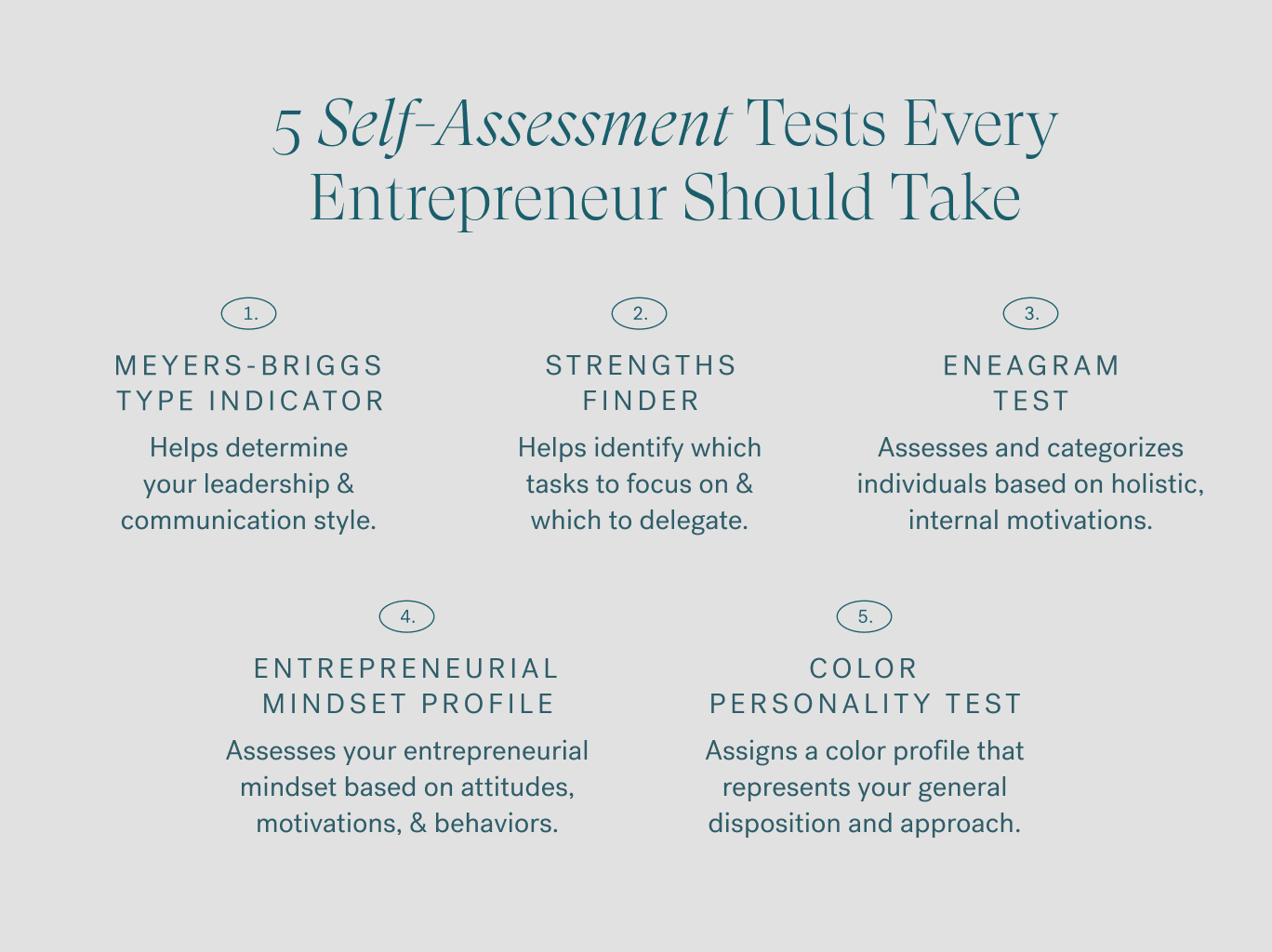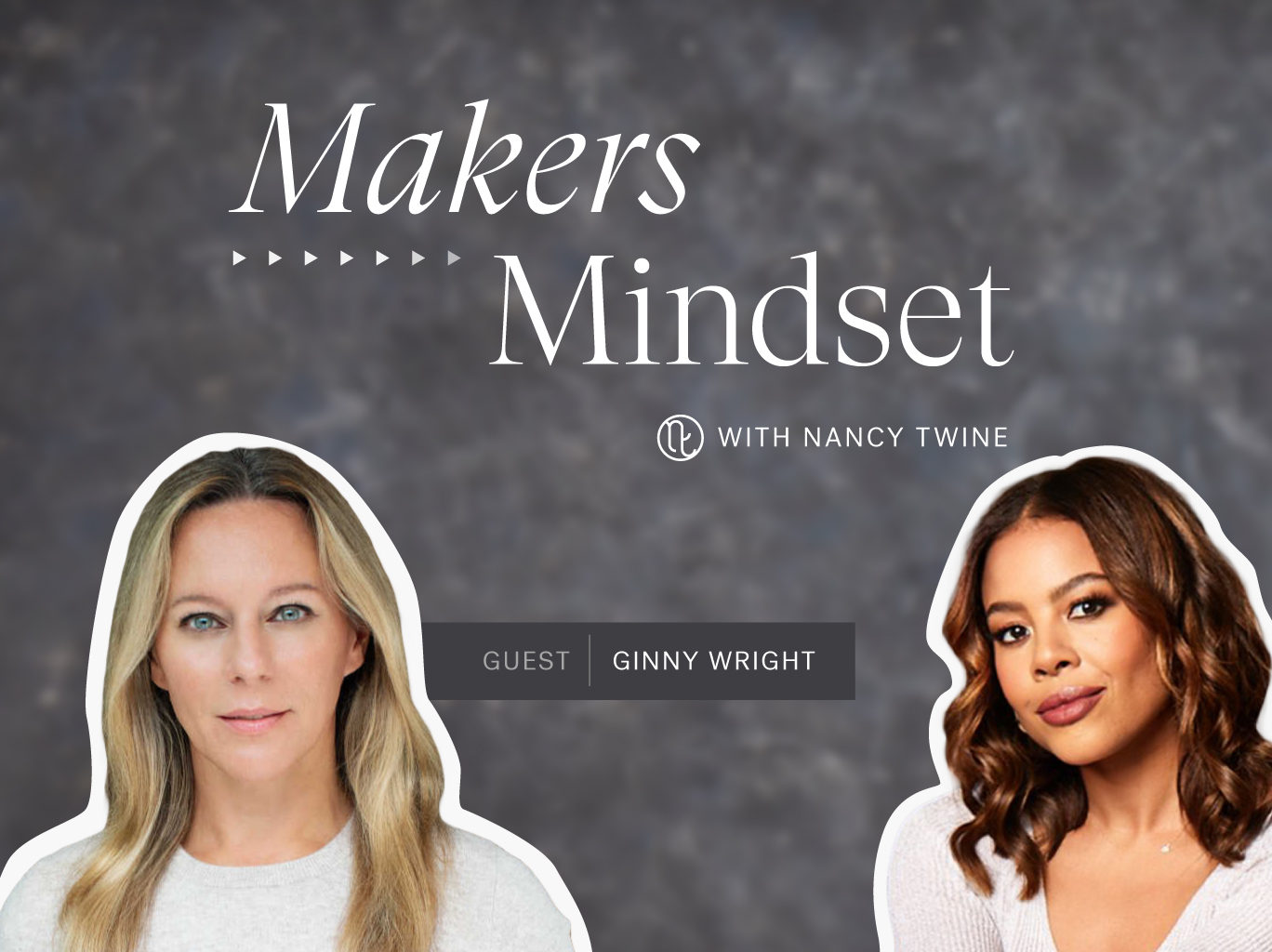If you’ve ever found yourself twiddling your thumbs during a team-building day, you’ve likely encountered a self-assessment test.
Over the years, tools like Myers-Briggs and Enneagram (more on this later) have become commonplace assessments in the workplace. Each test functions as a framework to determine or account for various personality traits, strengths, and weaknesses that inform our approach to relationships and ideas. For entrepreneurs, this is an especially important and advantageous foundation to build on.
The lines between professional presentation and personal aspirations are merged when building a business from the ground up. Having a clearer idea of who you are and how you operate is crucial. Self-assessments are a fun way to gain awareness on preferences and motivations for establishing and operating successful businesses. Results can bear surprising insights into strategies and tendencies that affect relationship building, financial management, marketing, and innovation.
What is a Self-Assessment Test?
Before we continue, let’s get clear. A self-assessment test is a tool that allows individuals to evaluate their own assets and deficits in a particular area, such as skills, personality, or performance. Self-assessments can identify areas of improvement and create personal or professional development goals.
Personality Tests vs. Self-Assessment Tests
Personality tests assess character traits, behavioral patterns, and emotional responses. Self-assessment tests focus on evaluating one’s skills, knowledge, and abilities. Arguably, both these testing types are interchangeable.
For example, the Myers-Briggs Type Indicator (MBTI) is one of the most popular personality tests to introduce workplace dynamics. MBTI measures the psychological preferences in how people perceive the world and make decisions. It categorizes individuals into one of 16 personality types based on four dichotomies:
1. Extraversion/introversion
2. Sensing/intuition
3. Thinking/feeling
4. Judging/perceiving
Despite being a personality test, MBTI is often seen as a determinant of leadership and communication skills on teams. MBTI results are often used to assess and/or assign roles for conflict resolution, energetic boundaries, and managing responsibilities.
One thing to keep in mind: Self-assessments have become more robust with time, but results are relative to individual input, perspectives, and mindsets. (A.K.A., nothing is set in stone.) During her days in finance, Nancy’s Myers-Briggs was ENTJ. (Extraverted, Intuitive, Thinking, and Judging personality traits). This type is known as the Commander — a high energy, hyper-focused accomplisher — a drive needed as she conquered the sales floor of Goldman Sachs during her early career days.
Now, after venturing off on her own entrepreneurial journey, building out a thriving team and company, delving into philanthropy, and finding her place as mentor, Nancy has shifted to an ISTJ personality type. (Introverted, Observant, Thinking, and Judging.)
“…over time I’ve learned to be more empathetic, patient, and well-rounded to be an approachable leader. Even though my strengths are still being honest, direct, and leading with integrity, it’s more calm and practical. Those still things really embody me.” — Nancy Twine
From the Commander to the Logistician, this type is known for being reserved and methodical in their execution of ideas — a mindset necessary for an entrepreneur breaking into a new industry and role. The conclusion? The outcomes of assessments can shift with time and should be seen as a guide to exploring our identities deeper rather than infallible truths.
5 Ways Entrepreneurs Can Use Self-Assessments for Business
Entrepreneurs can use self-assessments to understand their skills and knowledge gaps better. Assessment results are data points that provide a language and categorization for oneself that may otherwise go unnoticed or be seen as inconsequential. Here are five ways entrepreneurs can use self-assessments to better their business:
1. Identify Strengths and Weaknesses
By identifying their strengths and weaknesses, entrepreneurs can focus on their strengths to maximize their potential and improve on their weaknesses to mitigate risks.
2. Goal Setting
Identifying areas that require improvement lets entrepreneurs determine where to strategically place resources and time to reach their desired goals at every stage of their business and personal development.
3. Team Building
If growing or managing a team, self-assessments function as teaming building tools. Entrepreneurs can use assessments to identify the skills and strengths of their team members, allowing them to build a strong and cohesive network to reach their business goals.
4. Personal Development
It’s hard to truly see yourself, especially as an entrepreneur. When you can no longer rely on quarterly reviews from a manager to assess individual performance, entrepreneurs can turn to self-assessments. Results can bring awareness to opportunities of growth in communication, time management, or leadership skills to assist personal development.
5. Decision Making
Self-assessments can help entrepreneurs make more informed decisions. With a clearer understanding of their strengths, weaknesses, and areas for improvement, entrepreneurs can make decisions that align with their business goals and objectives.
Overall, self-assessment tests can be a valuable tool for entrepreneurs to improve their business performance and achieve their goals by highlighting how their personal traits may impact their working styles. Taking these self-assessment tests can help you gain a better understanding of yourself as an entrepreneur and improve your chances of long term success.

Get grant opportunities, exclusive invites, tools, and entrepreneurial inspiration in your inbox once a month. Sign up for the Makers Mindset newsletter.




